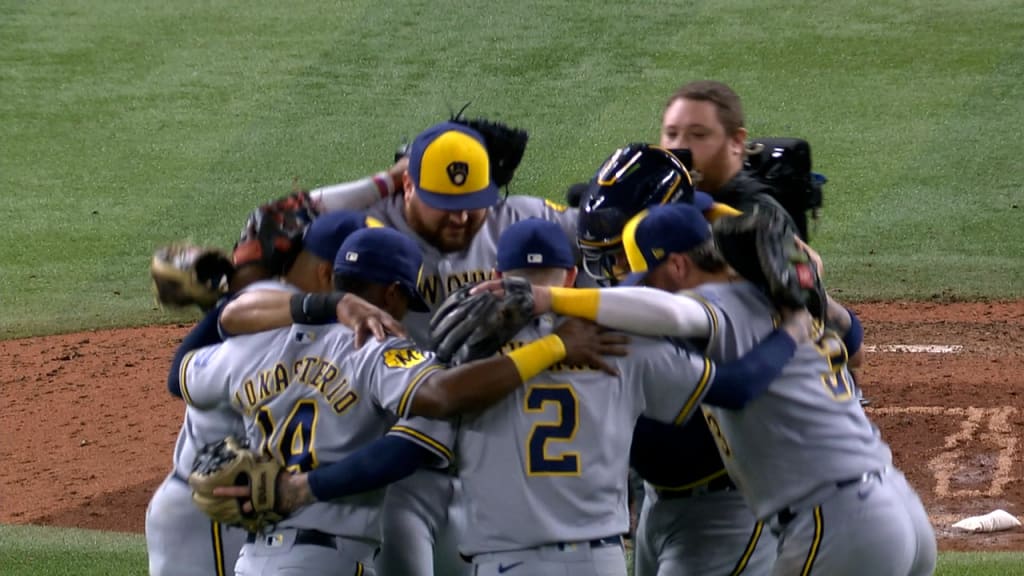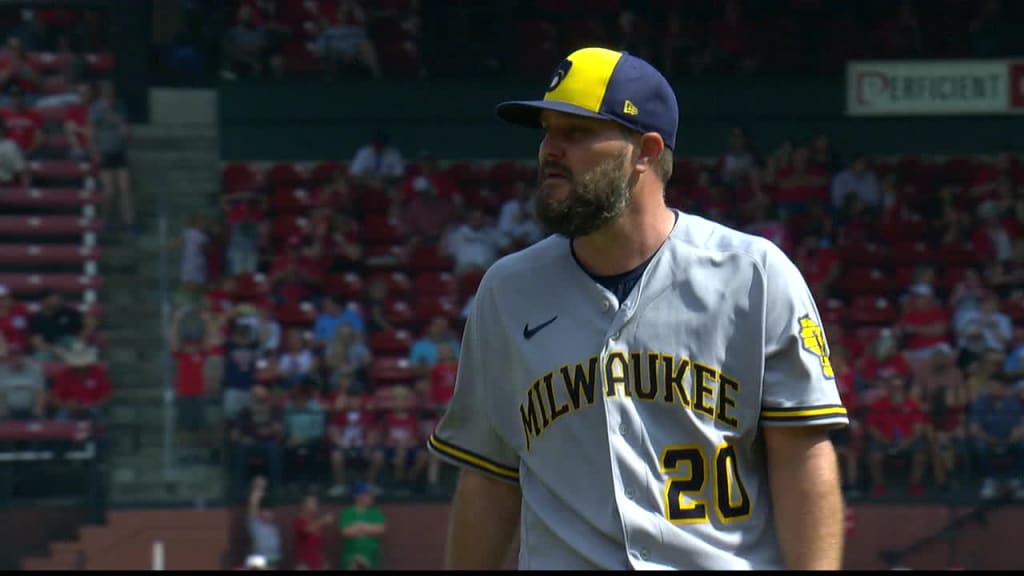How much sleep does an MLB team get? The Brewers answer
This browser does not support the video element.
This story was excerpted from Adam McCalvy’s Brewers Beat newsletter. To read the full newsletter, click here. And subscribe to get it regularly in your inbox.
MILWAUKEE -- We interrupt the Brewers’ chase for the National League Central crown to bring you a few words about the importance of a good night’s sleep.
It’s a timely topic since Milwaukee just finished a stretch of 17 games in 17 days, and when the young grandson of Brewers principal owner Mark Attanasio charmingly asked players over the weekend in Miami what they planned to do with Monday’s off-day back in Milwaukee, almost everyone answered with the same, single word: Sleep.
And besides that, earlier on the road trip, Blue Jays left-hander Yusei Kikuchi made news by saying that he developed a stiff neck in a recent start because he “only” snoozed 11 hours the night before his start, instead of the usual 14.
“Excuse me? Fourteen hours?” said Brewers pitcher Brandon Woodruff.
“I think the last time I got that much sleep, I was 6 years old,” said Brewers closer Devin Williams.
Or as Willy Adames put it, “That’s like my teenage years.”
Naturally, we had to canvas Milwaukee’s clubhouse to see whether there were any hibernators to challenge Kikuchi. Most players were able to provide accurate answers about their sleep habits because so many of them use wearable devices that track sleep and recovery -- in the case of Wade Miley, multiple devices. The 36-year-old lefty has prioritized his health this year and not only wears a WHOOP band -- a popular, watch-sized gadget that is particularly good at tracking daily recovery -- but also has an Oura Smart Ring on his finger.
Miley’s average sleep -- five to seven hours per night -- isn’t as much as he’d like. He’s working on it.
This browser does not support the video element.
Most players were in what’s probably considered a “normal” range, from Miley and first baseman Rowdy Tellez on the low end at five to seven hours each and rookies Brice Turang, Sal Frelick and Abner Uribe and veteran Josh Donaldson on the high end. Turang said he routinely logs eight to nine hours of sleep. Donaldson said he slept 10-12 hours a night before he had kids, and now gets eight to 10. A Spring Training visit from a sleep specialist years ago convinced him how important it is.
“In general, I’m eight to nine hours,” Brewers ace Corbin Burnes said. “But I also have an 18-month-old at home, so that’s all the time I can get. Carter sleeps 12 hours, so we’ve been blessed there. That’s partly because of [my wife] Brooke going through all of the sleep training.”
Frelick and Uribe appear to be the Brewers’ co-sleep champs. Both said they log 10-12 hours a night, and Frelick seemed surprised when that answer made nearby jaws drop.
“Is that a lot?” he asked.
Yes, that’s a lot. Only a handful of players said they get more than eight hours. Yelich said his sleep ranges from six to nine hours, depending on the schedule. Adames sometimes gets as little as four to five hours per night when the Brewers bounce between time zones on road trips. He struggles with that part of the job.
More and more, technology is helping players stay on track in the shut-eye department.
“I started with the WHOOP two years ago, but it was during the rehab process for me that I really paid attention to that information,” said Woodruff, who missed four months with a strained muscle behind his pitching shoulder. “Sleep is probably the No. 1 variable in terms of recovery and helping your body bounce back.
“I can’t do 13, 14 hours, but I know if I do eight hours, that’s still a lot. Sleep and nutrition, that’s still a little bit of a struggle. I like my fried food. But I pay attention to that stuff a lot.”
Of all the players polled about how much they sleep, outfielder Mark Canha gave the most relatable answer.
“Not enough,” he said.

